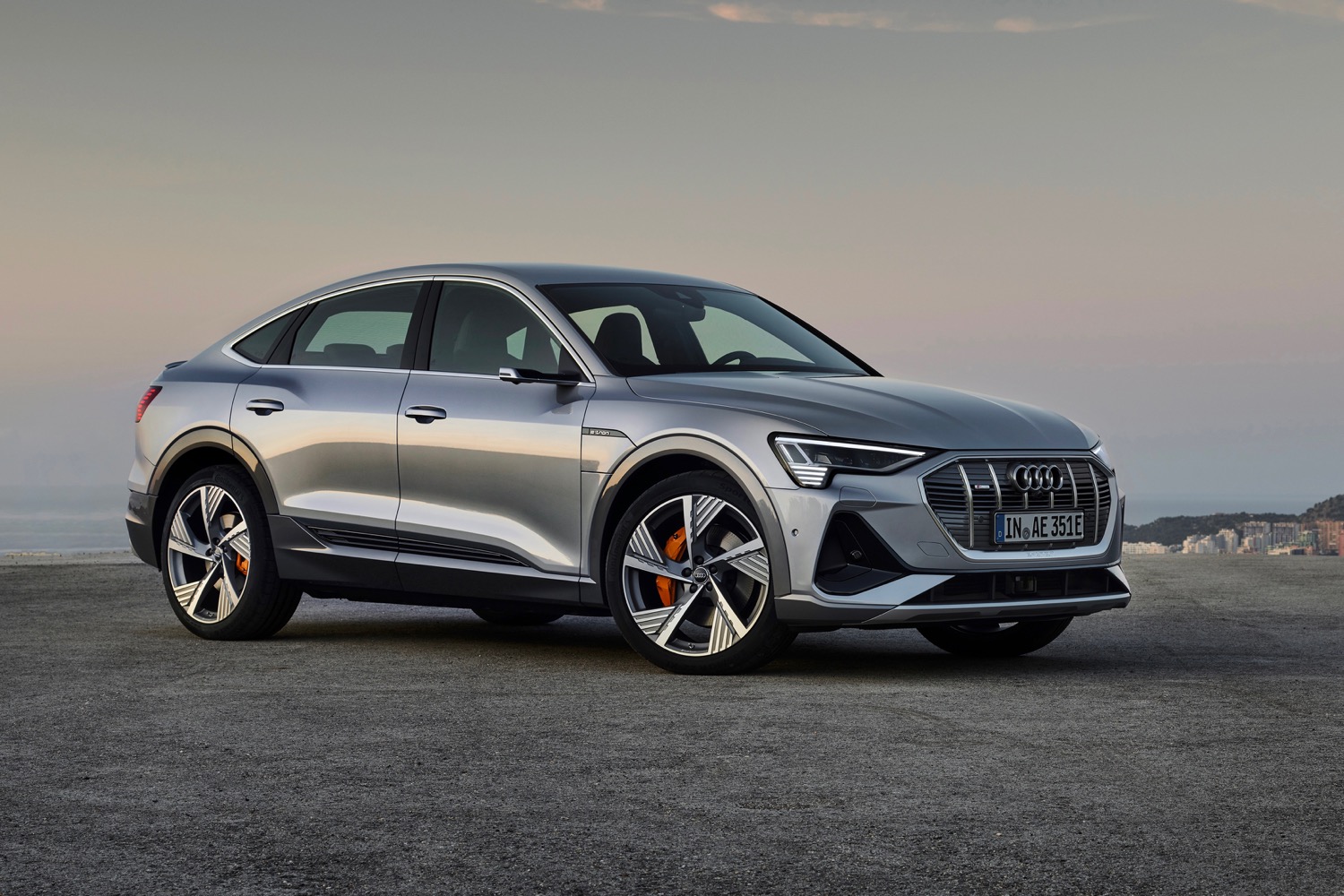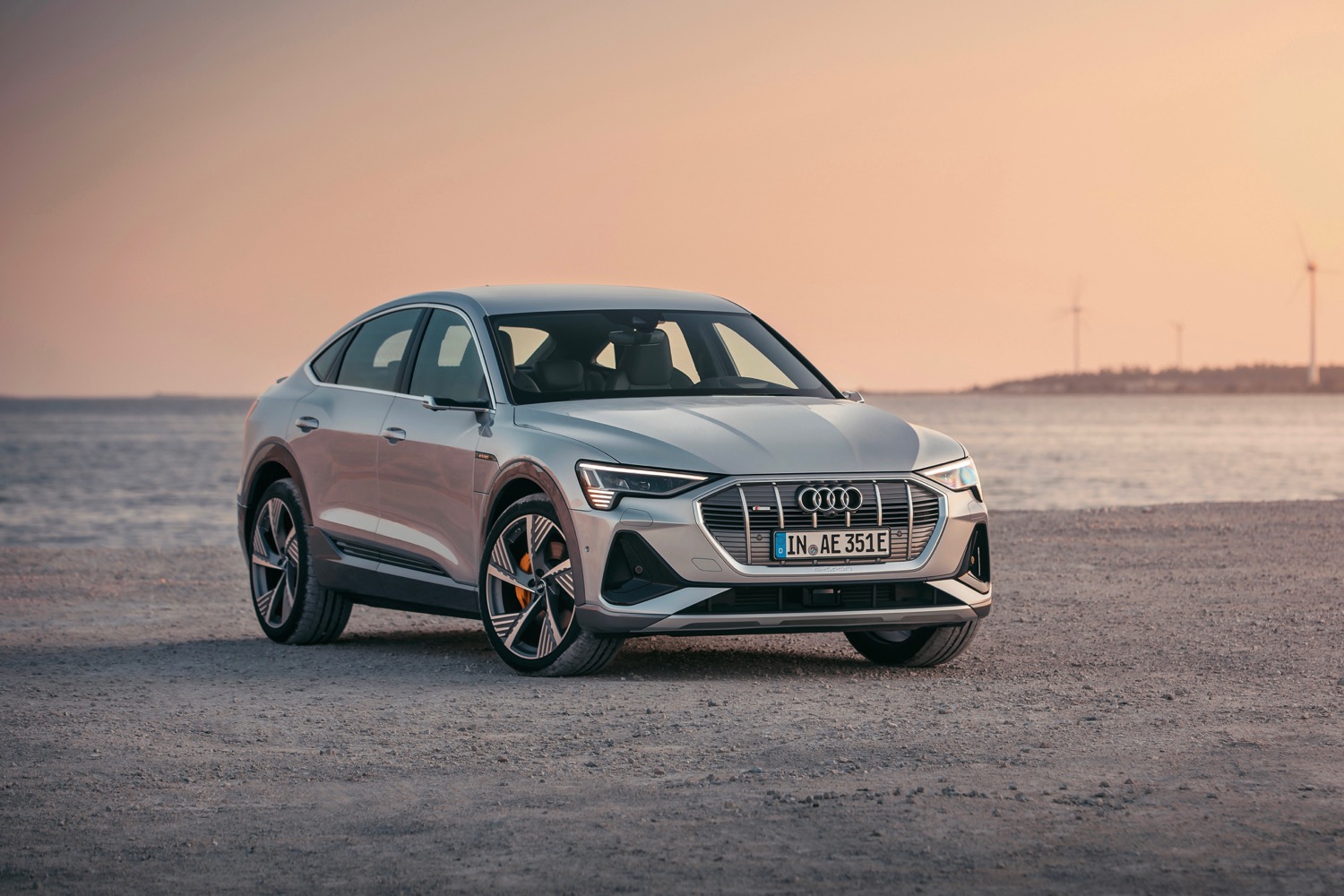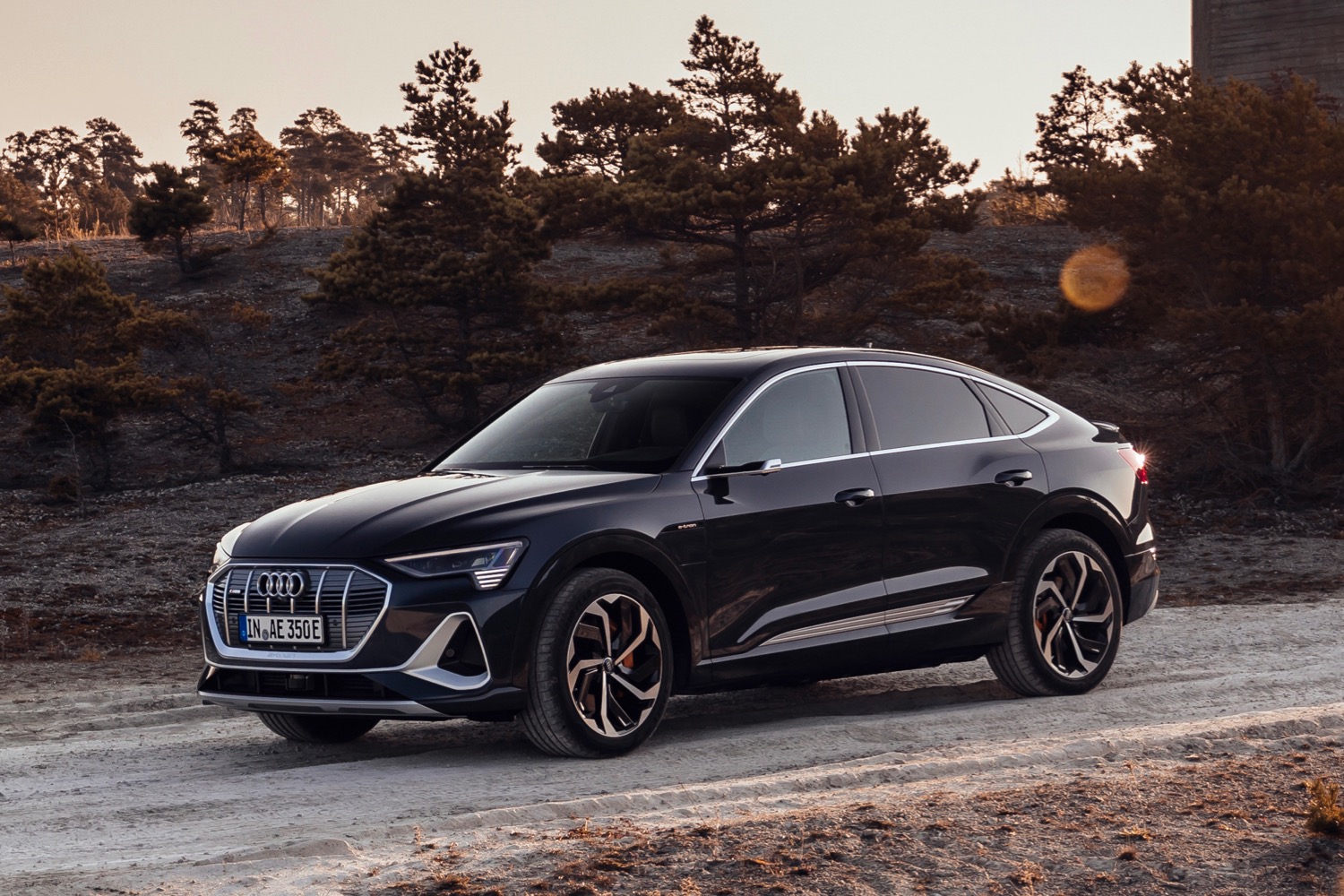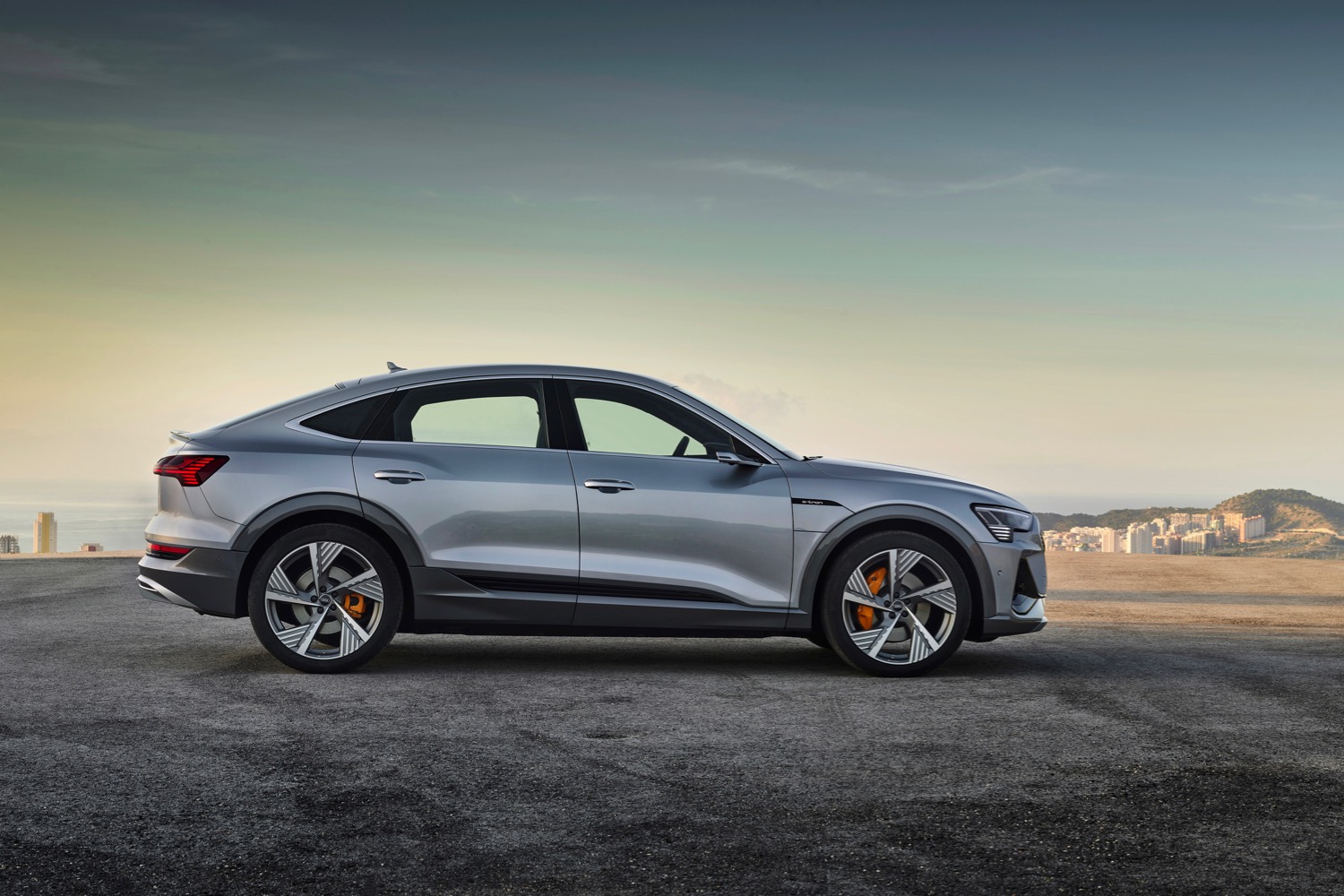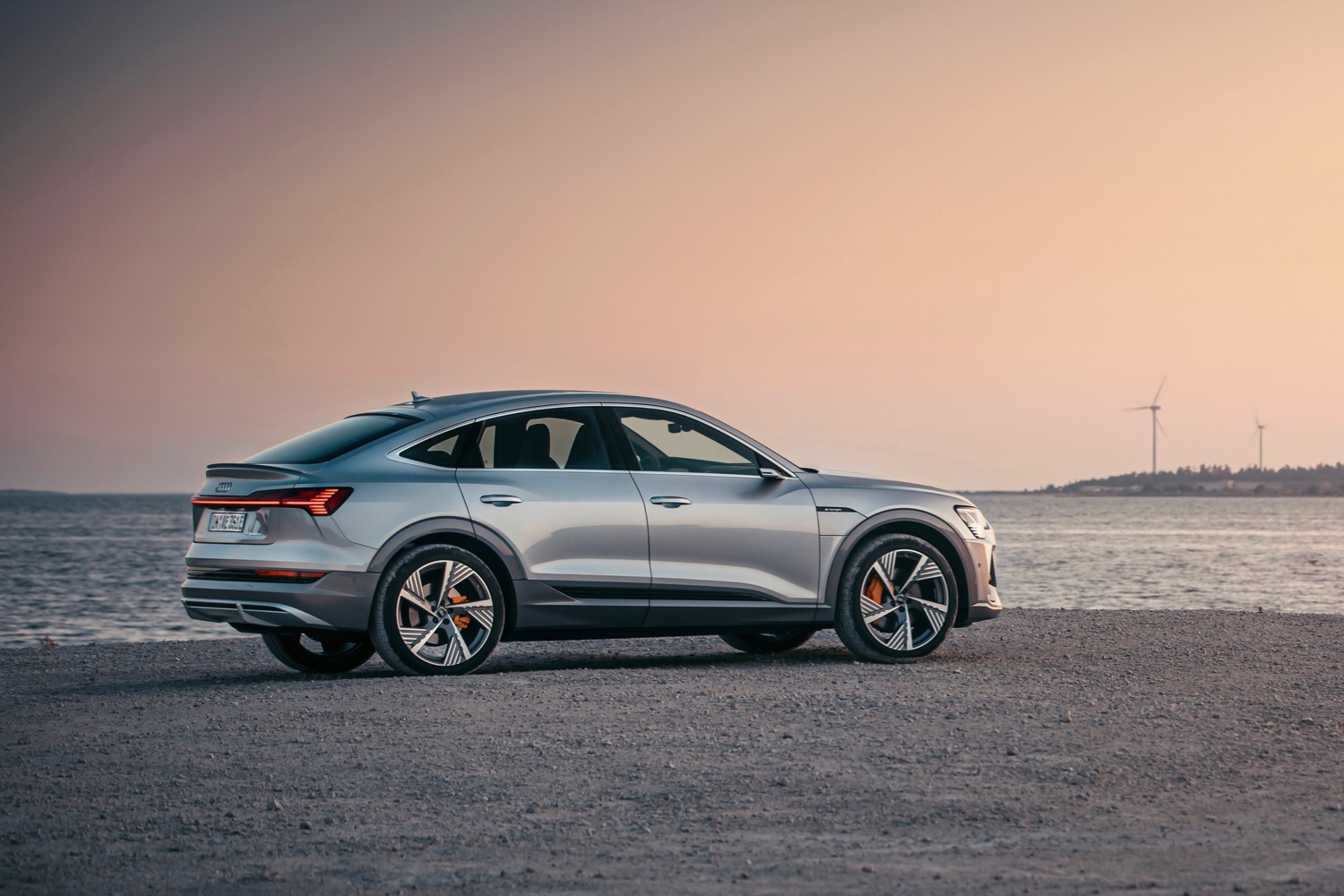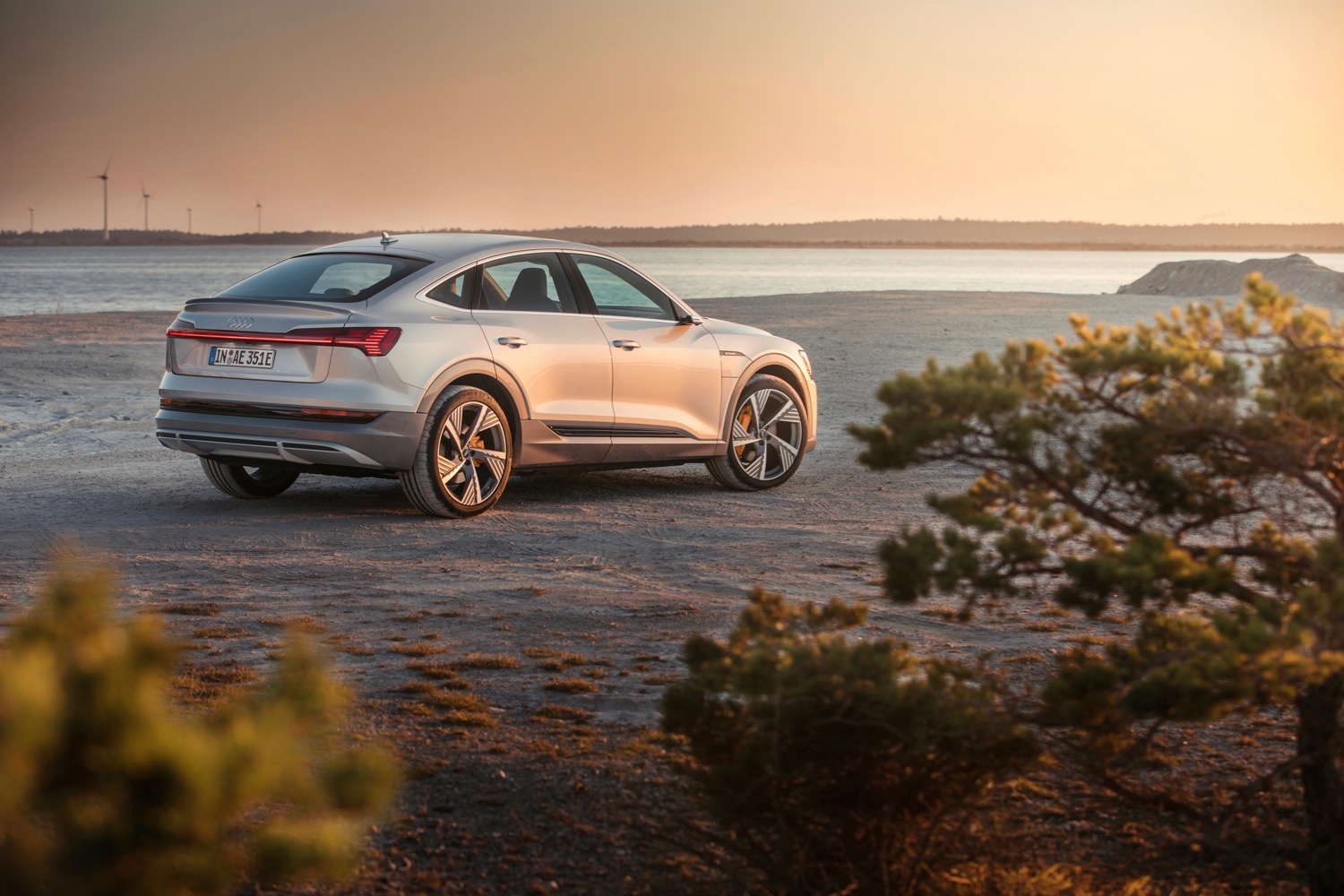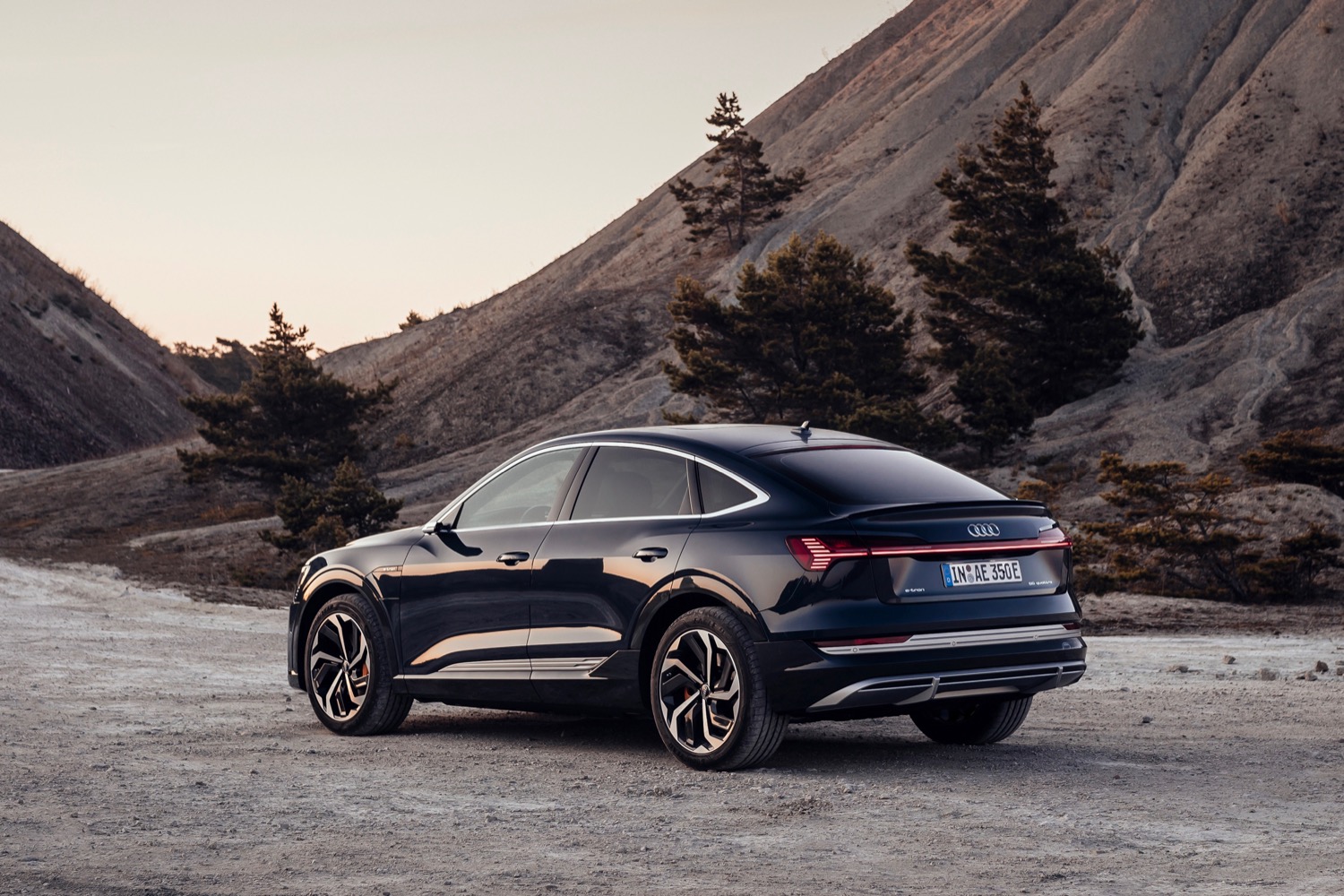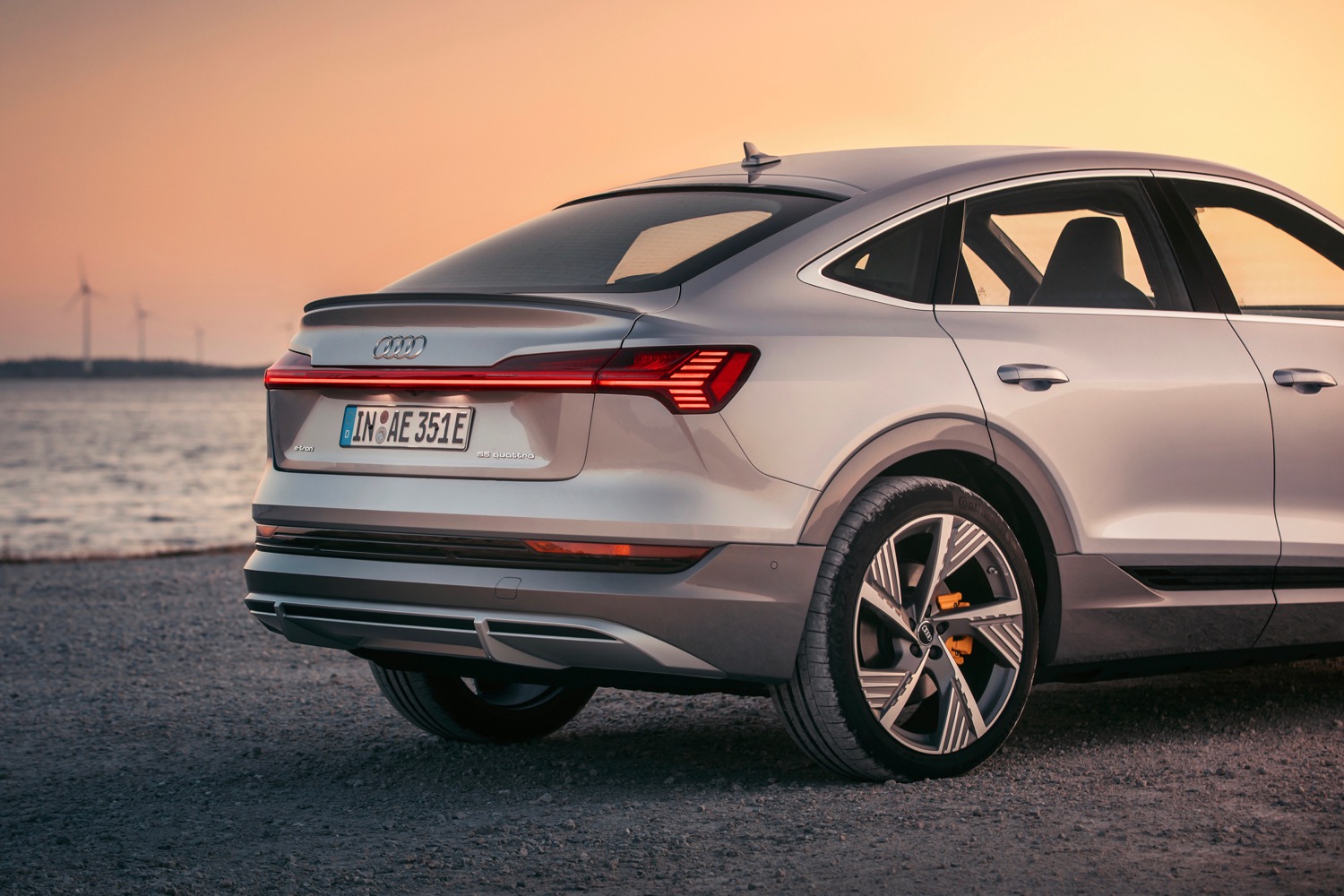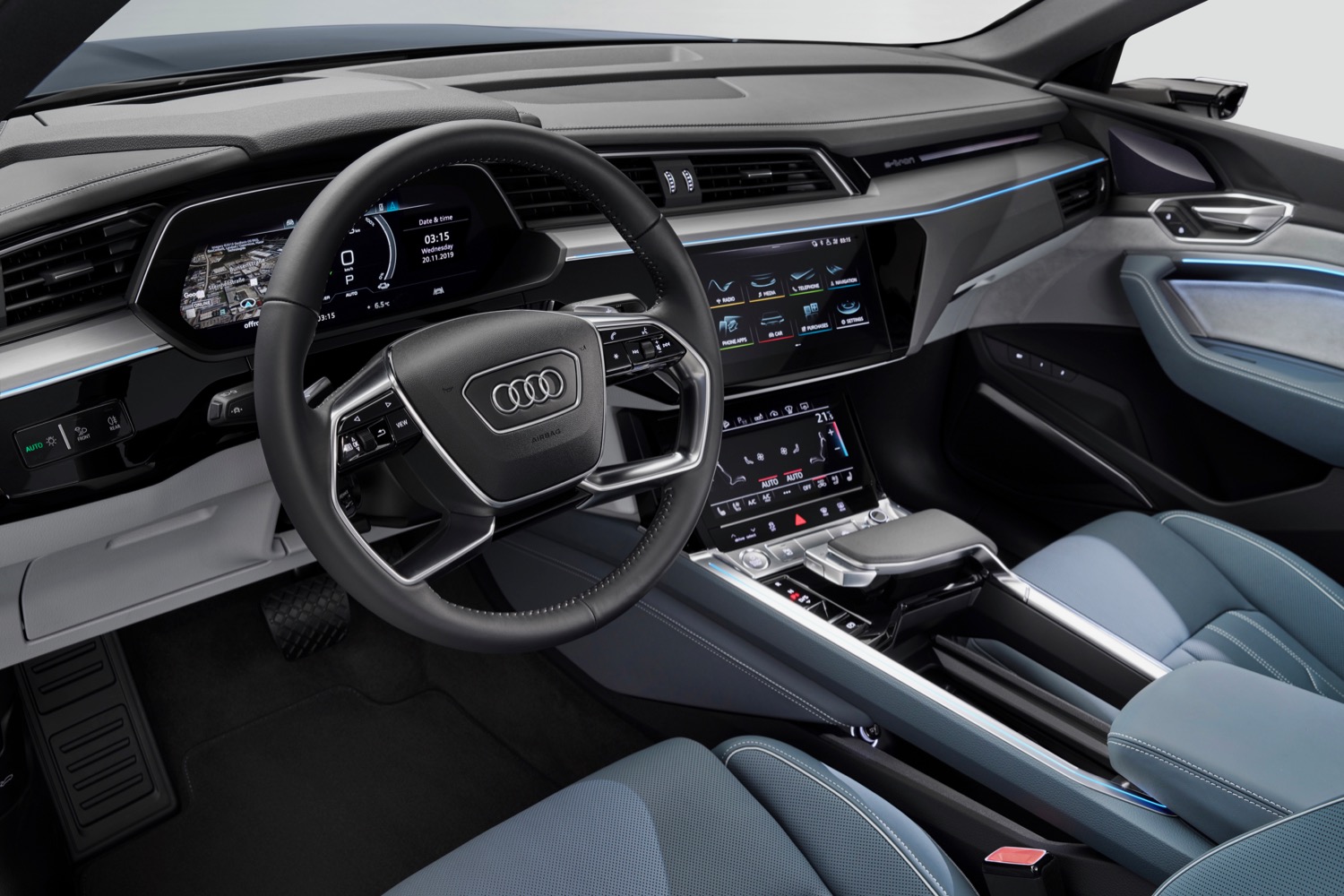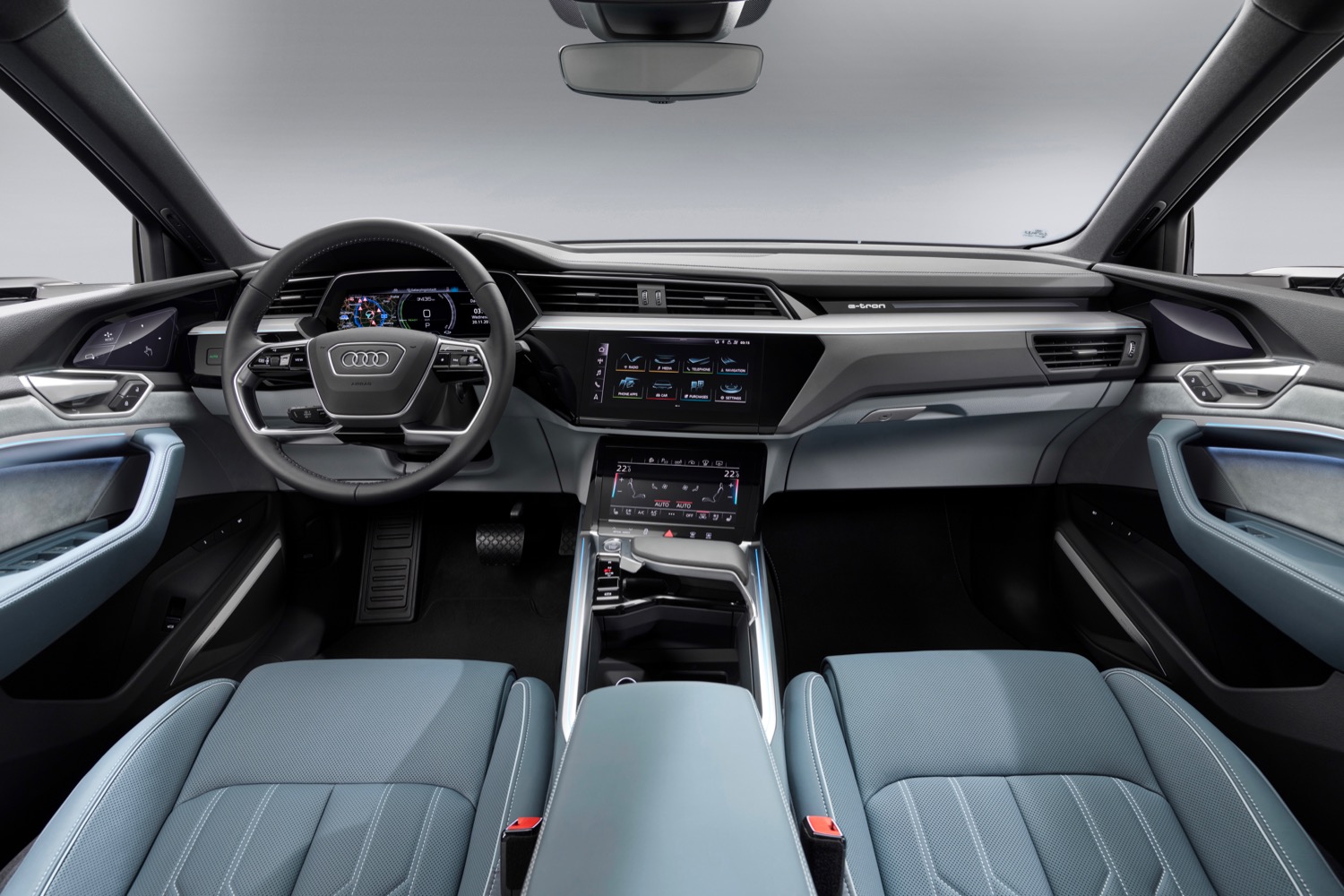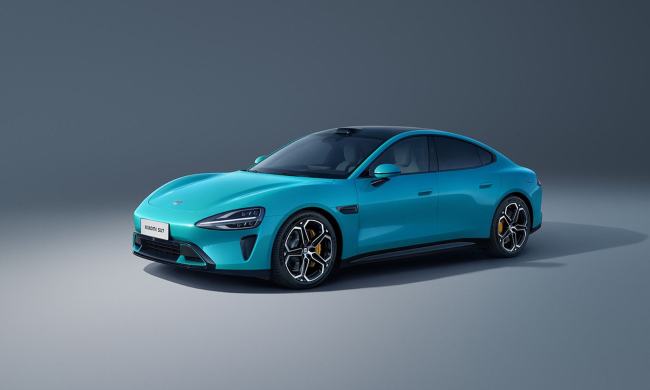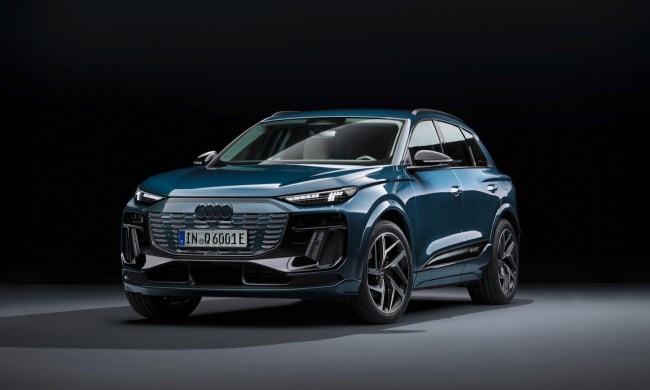Audi will soon start delivering the fastback-like 2020 E-Tron Sportback it unveiled at the 2019 edition of the Los Angeles Auto Show. The company’s second series-produced electric car will begin arriving in American showrooms during the summer of 2020. When it does, it will teach the E-Tron it’s based on a couple of new tricks.
Pricing starts at $77,400 before a mandatory $995 destination charge (think of it as shipping and handling for cars) elbows its way into the equation. To add context, the E-Tron carries a base price of $74,800. Keep in mind eligible buyers can claim a one-time $7,500 tax credit from the federal government, and some motorists might have the option of requesting additional incentives from state and local officials. All in, the Sportback starts at about $70,000.
Its fast-sloping roof line is reminiscent of the A5 and the A7, the company’s design icons. If you had X-ray vision, you’d peer right through the sheet metal and see the 95-kilowatt-hour lithium-ion battery pack the E-Tron is built on. The pack is engineered to provide only 91% of its total capacity to ensure it lasts for as long as possible. This corresponds to a 218-mile driving range in real-world conditions, which is up from the E-Tron’s 204-mile rating.
Lessons learned from monitoring the SUV’s battery over time helped Audi increase range without sacrificing performance, but that’s not all. Engineers also improved the thermal management system, made the electronics more efficient, and recalibrated the brakes. Another major difference is that the electric motor assigned to the front wheels remains off when it’s not needed, like under low-load conditions. Step on it, and it automatically returns online to deliver the full 355-horsepower output, though an over-boost function briefly increases that figure to 402.
“Just as efficiencies are found over time in our fuel engines, the same learnings are achieved in our battery-electric platforms,” a spokesperson told Digital Trends. We can confirm the Sportback’s optimized drivetrain will make its way to the standard E-Tron in the near future, so its range will undoubtedly increase in the coming months.
The 95-kilowatt-hour lithium-ion battery pack is compatible with 150-kilowatt fast-charging, so motorists can channel 58 miles of range (about an hour’s worth of driving, according to Audi) by plugging it in for 10 minutes. Alternatively, you can zap the battery with 174 miles of range if you’ve got 30 minutes to spare or kill. That’s plenty; the company’s research concluded the average premium-vehicle buyer drives 30 miles a day.
Not every Sportback will be created equal. At launch, motorists will have the option of selecting a Limited Edition One model set apart by plasma blue metallic exterior paint, orange brake calipers, bright trim, and sporty-looking S-Line bumpers on both ends. The cabin gets gray leather upholstery and a two-tone headliner. Audi told Digital Trends fewer than 1,000 examples of this version will be earmarked for the American market.
What’s next?
We’ve only seen the tip of Audi’s electrification iceberg. The production version of the E-Tron GT concept introduced in 2018 is scheduled to make its global debut before the end of 2020, likely at the Los Angeles Auto Show — assuming it’s not canceled. The low-slung sedan will share its basic underpinnings with the Porsche Taycan, which is good news for driving enthusiasts, and it will slot into the performance-infused Audi Sport range.
At the other end of the spectrum, the Q4 E-Tron concept from 2019 will spawn a crossover that Audi will position as its most affordable EV. It’s also tentatively scheduled to make its debut by the end of 2020.
